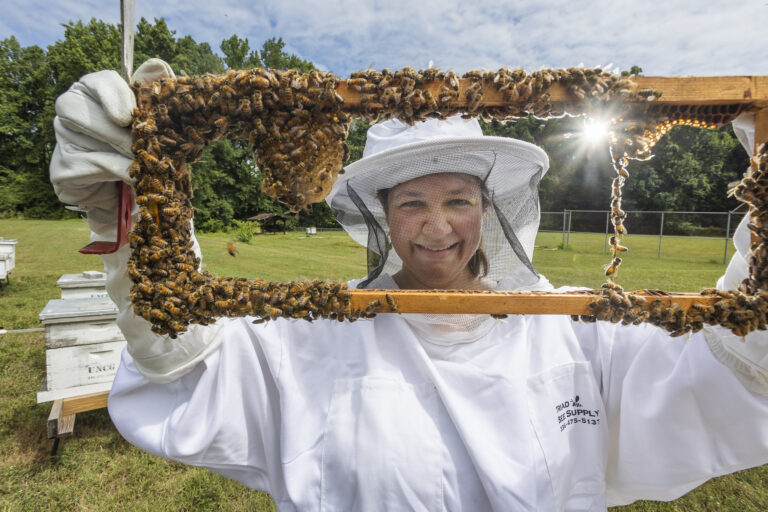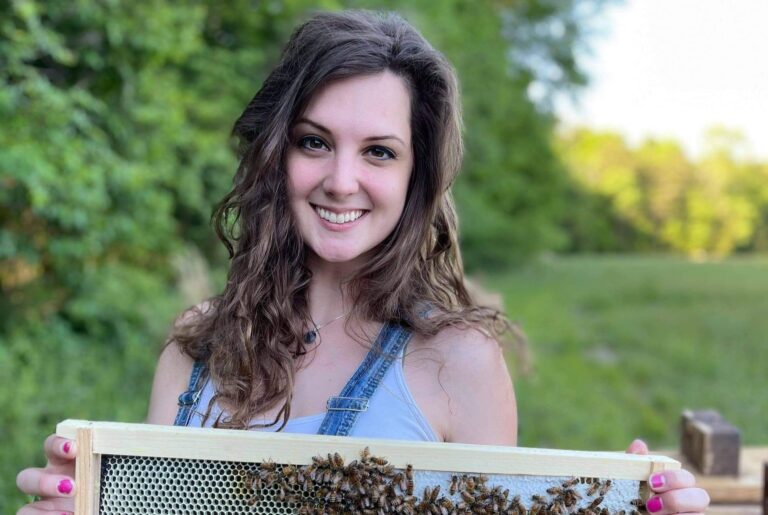It’s been rumored that most good ideas are shared over tacos.
While there may not be a way to prove this scientifically, we believe it to be true for us – that’s how the concept of Optera was born.
In March 2020, Kaira and Phoebe were at lunch with their colleagues in the UNC Greensboro honey bee lab discussing career goals. Kaira had been developing UBeeO™ for nearly a decade through her PhD and post-doctoral work and was ready to move it to the market for beekeepers; Phoebe was about to finish her master’s studies that year and wanted to start a beekeeping business. The two joined forces and officially co-founded Optera a few months later.
Today, the pair manage 100 research hives in Greensboro, NC and still research several topics related to honey bee health.


